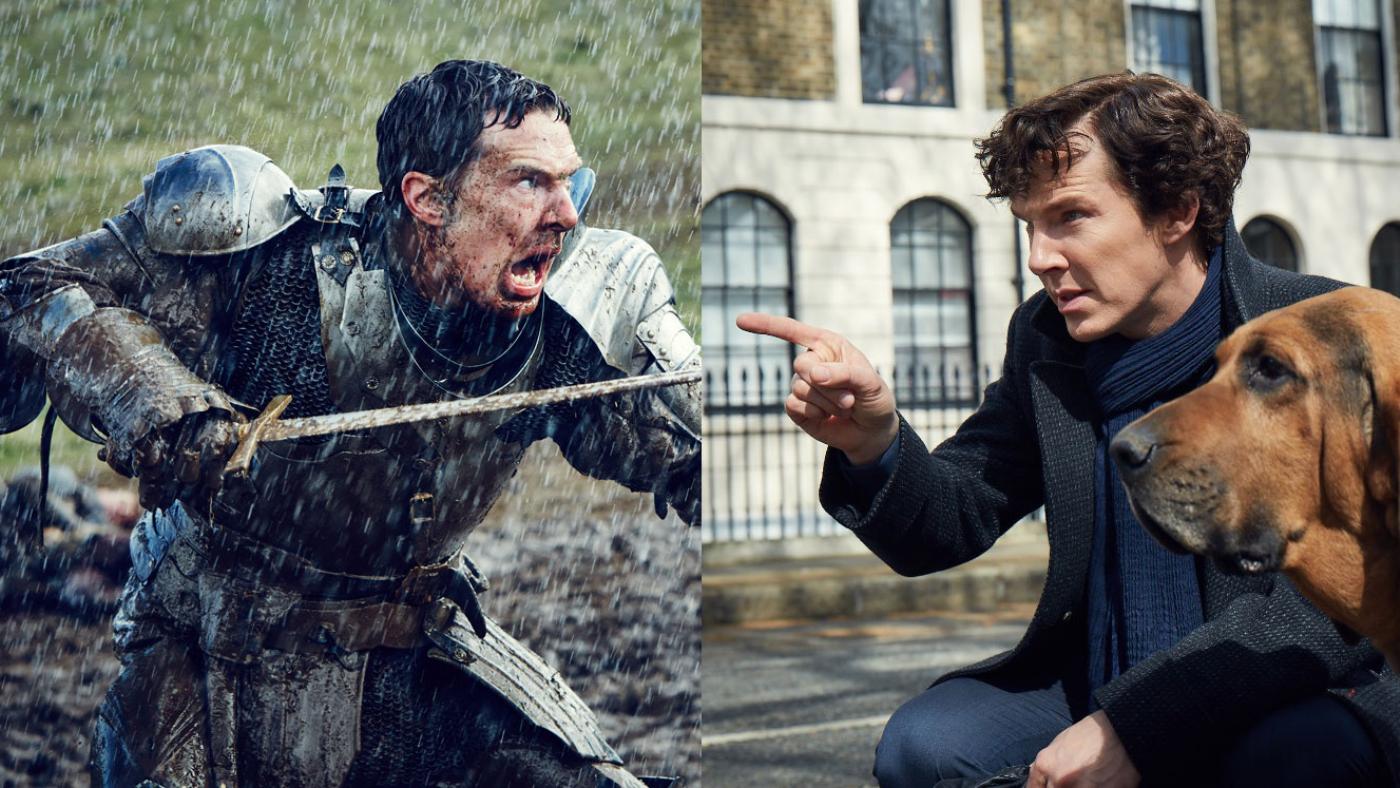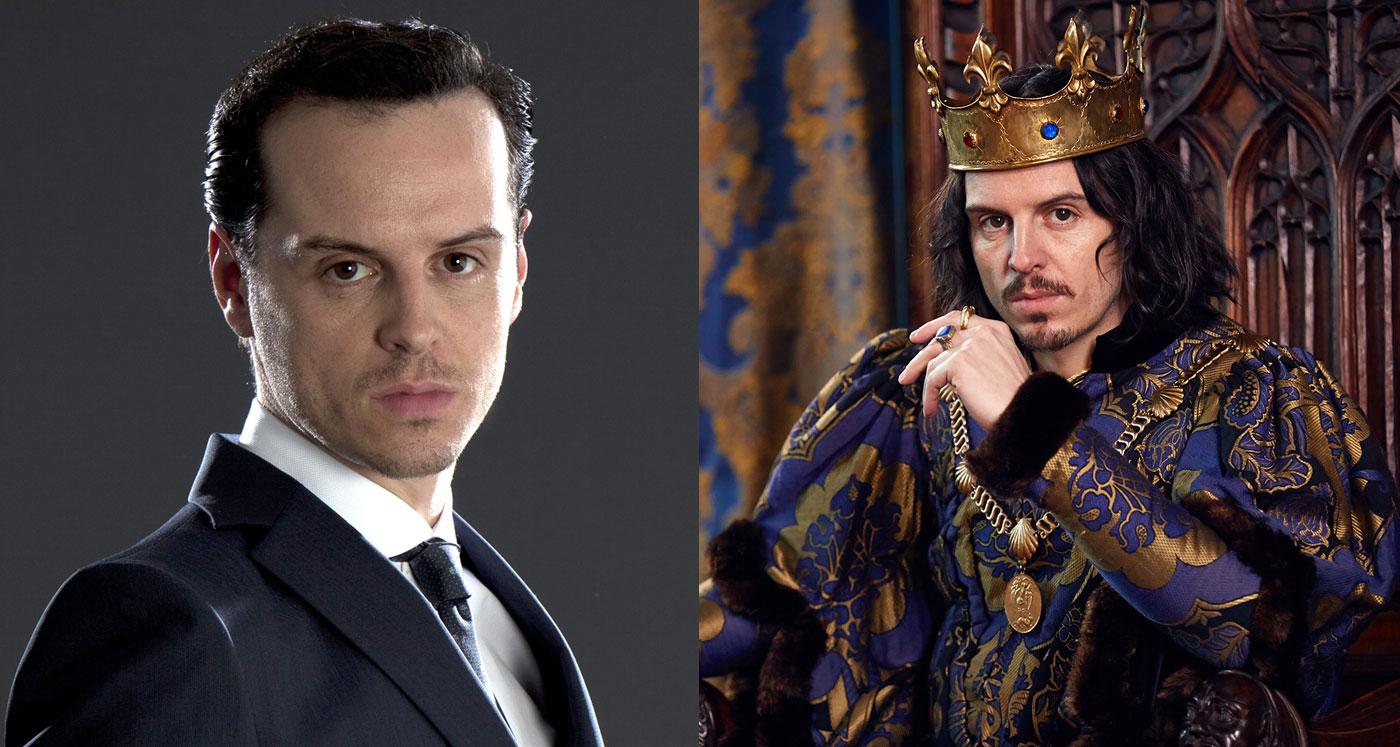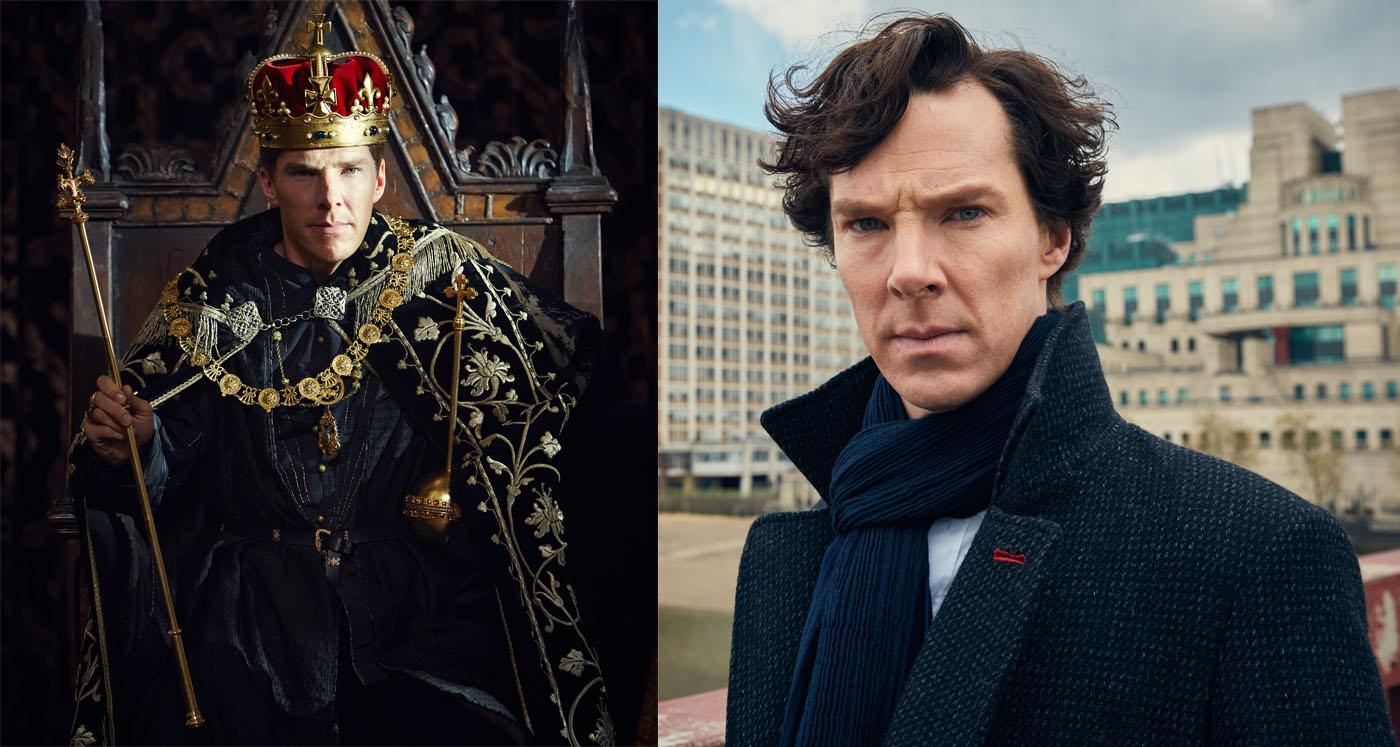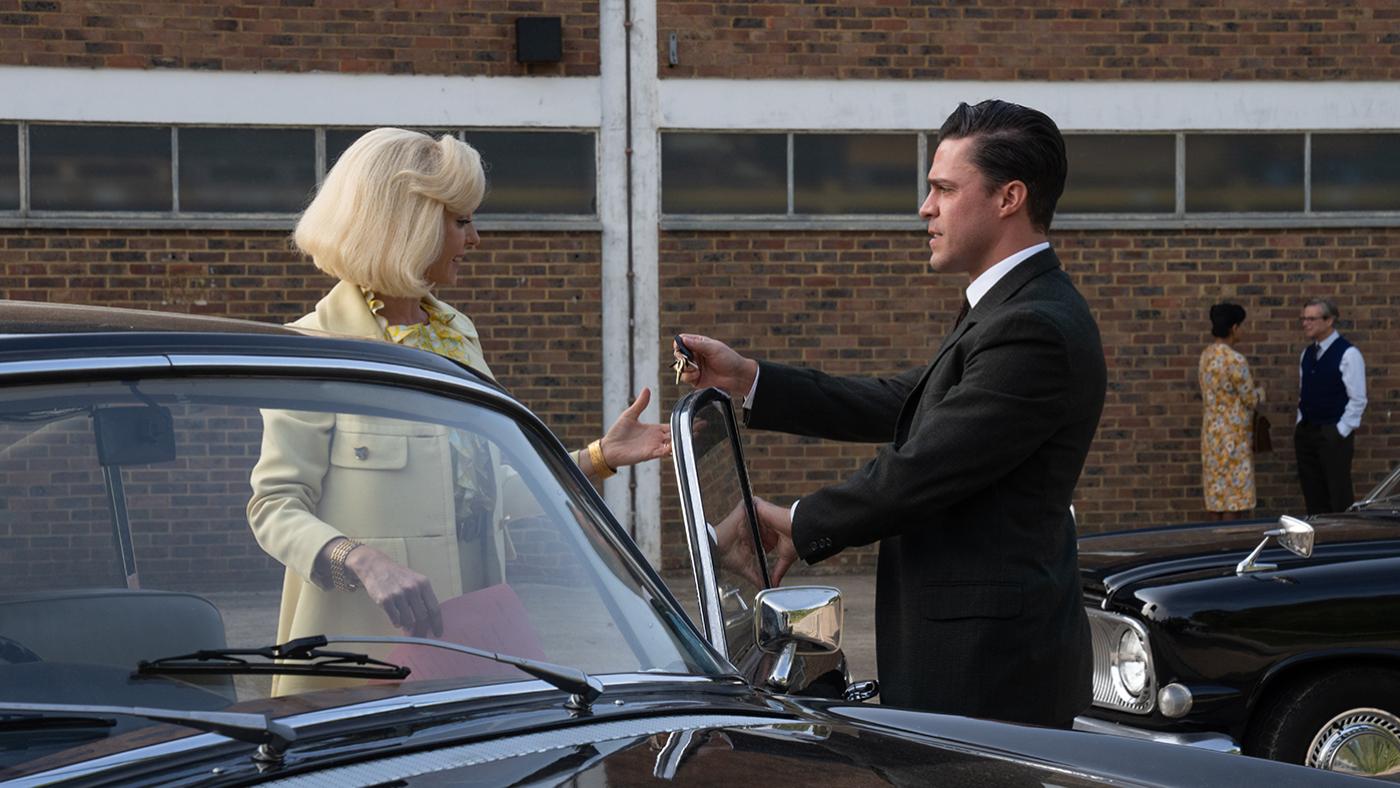Ruthless Kings and Sociopathic Geniuses
Daniel Hautzinger
December 14, 2016

Benedict Cumberbatch is on PBS a lot right now. He stars as Richard III in the Shakespeare adaptation The Wars of the Roses and returns as the beloved but exasperating title character of Sherlock in season 4, which premiered in January and is available to stream for Passport members. And he’s not the only actor to appear in both series. Andrew Scott, who in his role as Moriarty seems poised to stage a return in Sherlock this season (even if the demonic villain is truly dead), also appears in The Wars of the Roses as Louis XI of France.
So what do the historical Shakespearean kings portrayed by Scott and Cumberbatch have in common with their modern-day versions of Arthur Conan Doyle characters? Here’s a comparison.
Jim Moriarty and Louis XI
 (PBS/Robert Viglasky © 2015 Carnival Film & Television Ltd)Jim Moriarty is a nattily dressed evil genius, a psychopathic schemer who plots an elaborate series of murders. As brilliant as Sherlock and dangerously unhinged, Moriarty conspires to ruin the detective’s reputation and force him to commit suicide in order to save his loved ones. Moriarty is so maniacally bent on the destruction of Sherlock that he shot himself in the head, though it is still uncertain if he is actually dead−he reappeared in the finale of season three on screens across England repeating “Did you miss me?”
(PBS/Robert Viglasky © 2015 Carnival Film & Television Ltd)Jim Moriarty is a nattily dressed evil genius, a psychopathic schemer who plots an elaborate series of murders. As brilliant as Sherlock and dangerously unhinged, Moriarty conspires to ruin the detective’s reputation and force him to commit suicide in order to save his loved ones. Moriarty is so maniacally bent on the destruction of Sherlock that he shot himself in the head, though it is still uncertain if he is actually dead−he reappeared in the finale of season three on screens across England repeating “Did you miss me?”
King Louis XI of France could also be characterized as a devious villain, depending on your viewpoint. Though he appears only briefly in The Wars of the Roses, he easily and without regret switches allegiances at a simple slight from Edward IV, then pledges troops to support Edward’s overthrow.
Other fictional depictions of Louis paint him as more villainous. Sir Walter Scott portrayed him in his novel Quentin Durward as someone who “did his utmost to corrupt our ideas of honour,” and in Victor Hugo’s The Hunchback of Notre Dame Louis orders his guards to kill the protagonist Esmerelda and some rioters.
The real-life Louis had more in common with Moriarty, having earned the nicknames “the Cunning” and “The Universal Spider.” At the age of 16 he participated in a failed revolt against his father Charles VII out of desire to become regent of France. Even though Charles pardoned him and granted him management of his own province, Louis continued to intrigue against the king. Charles eventually sent an army to rein in his son and warned the lord who subsequently protected Louis that he was “giving shelter to a fox who will eat his chickens.” As king, he did unite France and strengthen the monarchy.
Sherlock Holmes and Richard III
 (Robert Viglasky © 2015 Carnival Film & Television Ltd/Hartswood Films and MASTERPIECE)Cumberbatch’s Sherlock is an irritatingly intelligent sociopath who easily offends others with his indifference to their feelings and to basic social norms. He esteems cold-blooded reason over emotion. He often tricks others to further his investigations, as when he pretended to kill himself, or fake-proposed to someone. He has an intense rivalry with his equally bright brother Mycroft. But he will do anything for his partner John, John’s wife Mary, and their new baby, and has shown that he also cares deeply about his landlord Mrs. Hudson, the police investigator Lestrade, and the pathologist Molly Hooper.
(Robert Viglasky © 2015 Carnival Film & Television Ltd/Hartswood Films and MASTERPIECE)Cumberbatch’s Sherlock is an irritatingly intelligent sociopath who easily offends others with his indifference to their feelings and to basic social norms. He esteems cold-blooded reason over emotion. He often tricks others to further his investigations, as when he pretended to kill himself, or fake-proposed to someone. He has an intense rivalry with his equally bright brother Mycroft. But he will do anything for his partner John, John’s wife Mary, and their new baby, and has shown that he also cares deeply about his landlord Mrs. Hudson, the police investigator Lestrade, and the pathologist Molly Hooper.
Shakespeare’s Richard III does not have any such redeeming qualities, though he does share some superficial similarities with the detective. Like Sherlock, he is slightly distasteful to be around, because he is a devious, ambitious plotter. He disdains sentimental emotion, but values power, not Sherlock’s vaunted reason. He pretends to be other than himself in order to manipulate people, but his lies are vicious and malicious compared to Sherlock’s. He too spars with his brothers, Edward IV and George the duke of Clarence, but he carries his rivalry much further than does the detective: Shakespeare’s Richard has his siblings murdered in order to gain the throne.
Just as Sherlock’s public image is tarnished due to Moriarty’s machinations in the finale of season two, the historical Richard has suffered from a mixed reputation. Authors like Shakespeare and some historians have depicted him as merciless and deformed, but others have praised him as a brave and good king. Either way, the hunchback myth is almost certainly false.
There’s one final coincidence between Richard and Sherlock. Martin Freeman, Sherlock’s John Watson, was Richard III in a 2014 production of the play at London’s Trafalgar Studios. But there are two roles that have absolutely nothing in common.







